Practice Compassionate Badassery

I learned the phrase “compassionate badassery” a few years ago when I stumbled into Lauren Rosenfeld’s Etsy shop YourToBeList. A silver bracelet, stamped with the words “practice compassionate badassery,” caught my eye.
Lauren described compassionate badassery like this:
“Being compassionate takes courage. It takes the strength to make ourselves vulnerable in order to be with others when they are in pain, so their pain can be transformed. So if you are a compassionate being, you are by definition — a serious BADASS.”
I bought it.
I’ve thought a lot about what it means to practice compassionate badassery, specifically how it informs my work as a compassion fatigue educator.
I see practicing compassionate badassery as a skillful way to stay healthy while effectively helping others.
It’s based in a belief that self-care & service inherently belong together.
It’s not some kind of title we get or status we achieve. It’s a mighty practice we engage in (mostly imperfectly) over the course of our lifetime.
In this practice, we’re always growing and learning. We’re never cured and we never graduate!
Practicing compassionate badassery means mindfully making vulnerable, courageous choices that support sustainable, ethical, and satisfying caregiving.
There are two linked actions that ground this practice:
-
Choose to embrace uncertainty and paradox.
-
Pledge hardcore allegiance to your own welfare.
That’s the short version. Here’s the TLDR version.
What does it mean to choose uncertainty and paradox?
Life is full of contradictions and change. It is simply the way things are.
It’s the way YOU are. As Walt said, we are large and contain multitudes.
Same goes for our work.
If we fight the contradictions and try to control everything, we’ll exhaust ourselves. Embracing uncertainty and paradox redirects our energy and allows us to thrive in the complicated spaces we hang out in.
Wait up, what’s a paradox again?
A paradox involves two elements, truths, or perspectives that seem contradictory, but are both true.
You know, “It was the best of times, it was the worst of times”, “Good people do bad things,” and “I know one thing. That I know nothing.”
Giving and receiving can be a paradox for helping professionals. These ideas seem to be at odds with each other. I have a duty to take care of others and I have a duty to take care of myself.
Both statements are true. But we often perceive that it’s a choice between two extremes.
Some choose pathological altruism and cause great harm to themselves in order to help others. But it’s not a contradiction to care deeply for yourself, as you serve the world.
Then there’s the “killing-caring paradox” which is specific to animal welfare work.
Many of us are tasked with ending the lives of healthy animals in our work. It seems like a paradox, but it’s true that we can love animals deeply AND end their lives.
Life is complicated. Things are rarely black and white. Almost everything is both/and. Not either/or.
But if we’re burning out or experiencing compassion fatigue we tend to drift into polarized, rigid thinking. It takes energy to stay flexible.
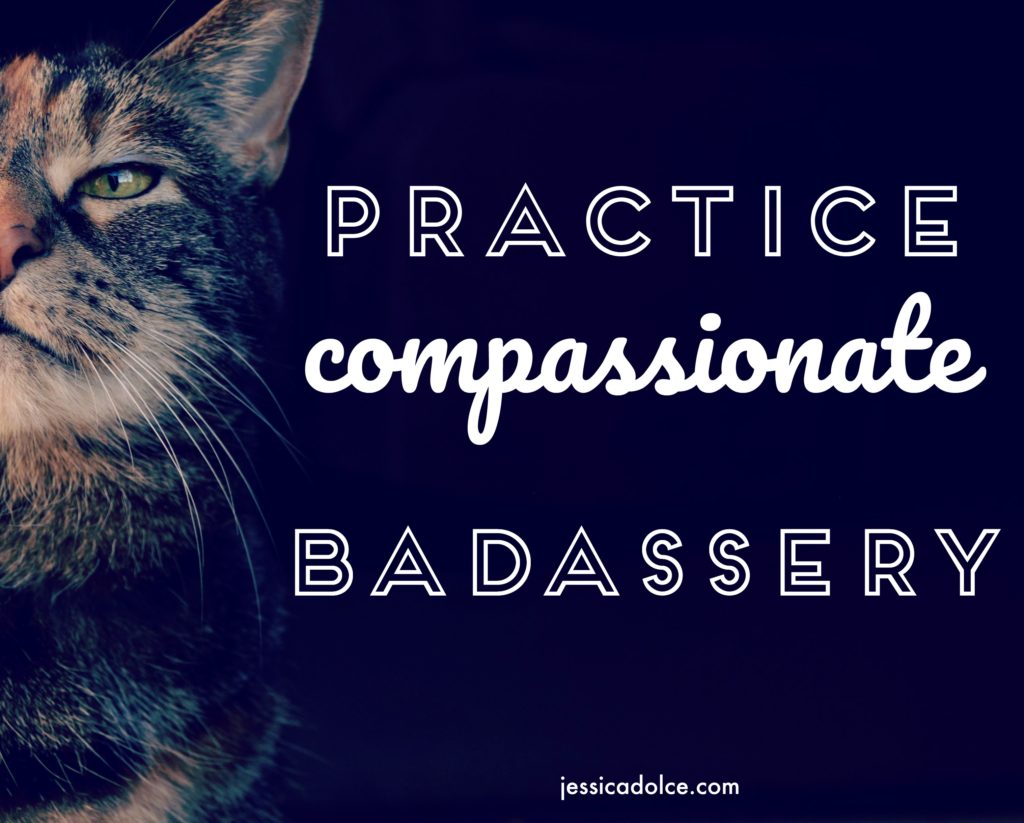
Compassionate badassery means we push back on that crusty, rigid thinking and choose to practice openness and curiosity in the face of uncertainty and paradox.
This is not easy, given what we witness and experience. It involves energy and risk. Our hearts will break.
That’s why it’s badassery.
If it were easy it would be called compassionate brunch life and everyone would be doing it. #compassionatebrunchlife #liveyourbestbrunch
Want to practice compassionate badassery? Let’s dive into some juicy contradictions:
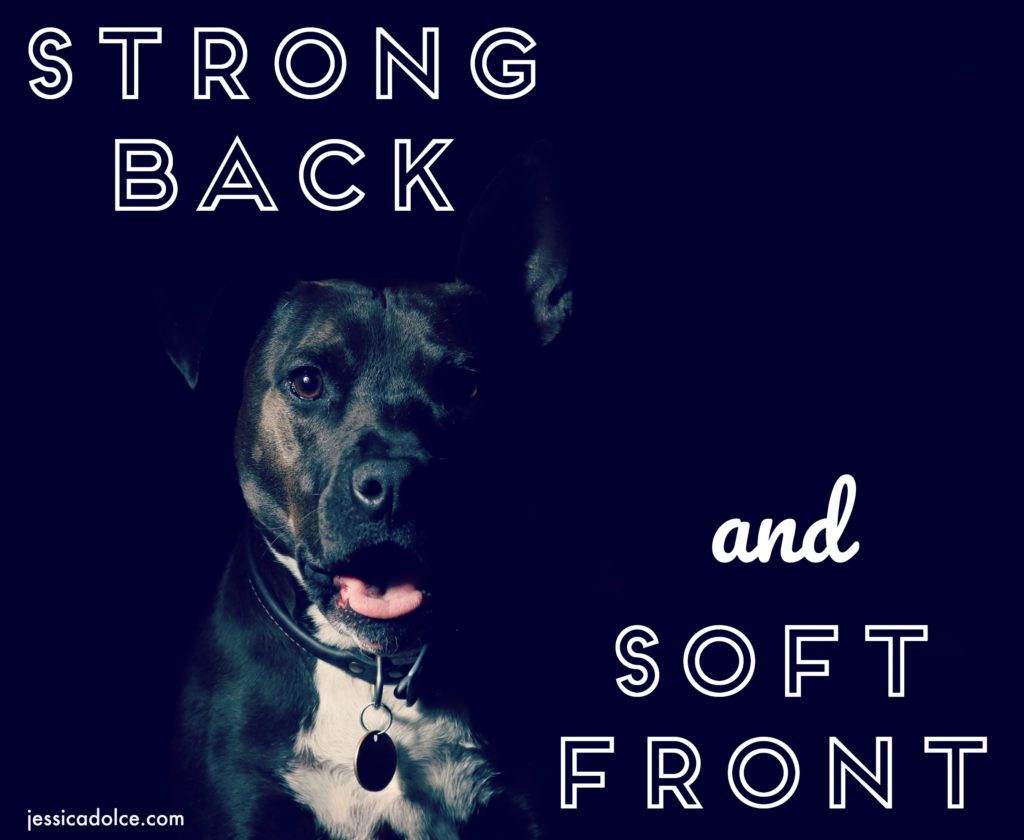
Strong back and soft front. The ultimate compassionate badassery practitioner, Roshi Joan Halifax, reminds us, “All too often our so-called strength comes from fear, not love; instead of having a strong back, many of us have a defended front shielding a weak spine. In other words, we walk around brittle and defensive…If we strengthen our backs, metaphorically speaking, and develop a spine that’s flexible but sturdy, then we risk having a front that’s soft and open….”
Healthy boundaries help hold us up, without completely armoring up. This strength allow us to soften, opening our hearts to ourselves and others. That’s how we remain compassionate in difficult circumstances.
Vulnerability requires strength. Just like Lauren said.
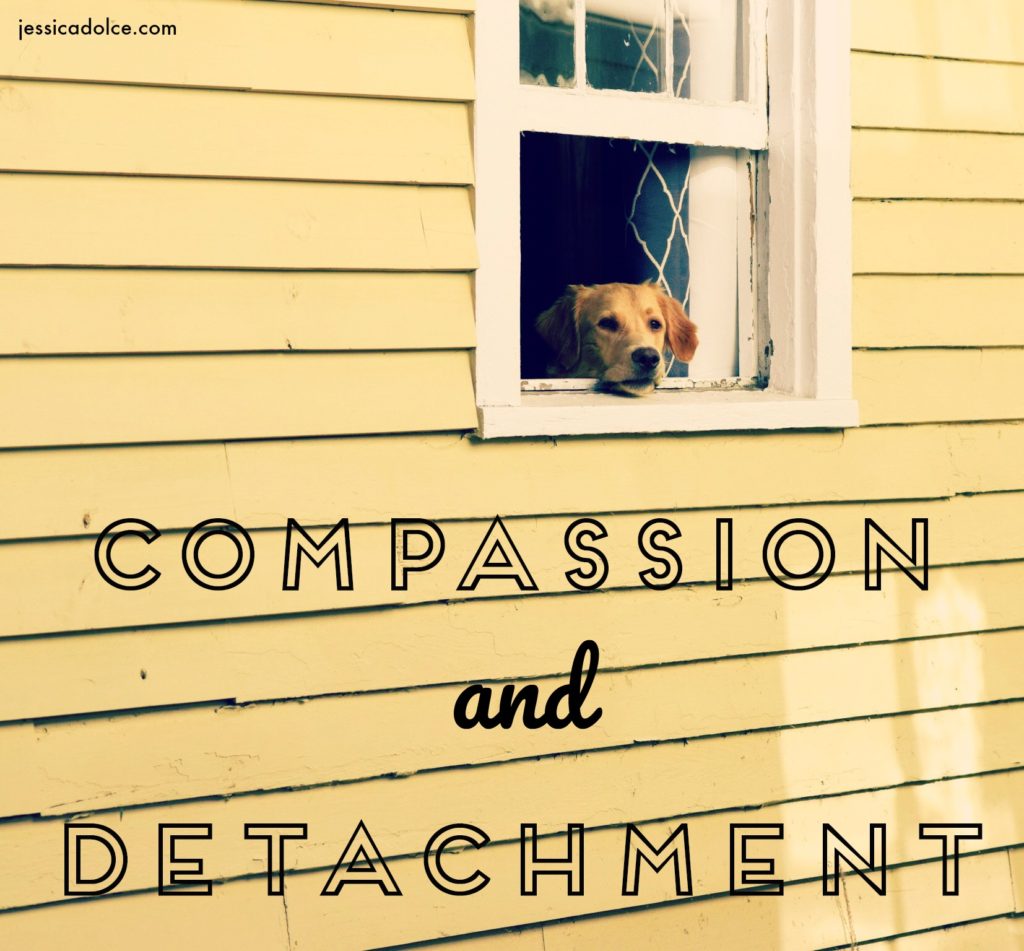
Compassion and detachment. As helpers we can be flooded by empathy, which exhausts us. Cultivating compassionate detachment is necessary.
That doesn’t mean we don’t care deeply. It means we give without getting lost in the pain of others, without taking responsibility for other people, and without becoming too attached to the outcome.
Buddhists might call this compassionate non-attachment.
We take a step back to access our sweet spot of empathetic engagement. When we practice compassionate detachment, we can do what’s best for those we serve AND what’s best for ourselves at the same time.
It’s a balancing act of self-regulation that can help to reduce compassion fatigue.
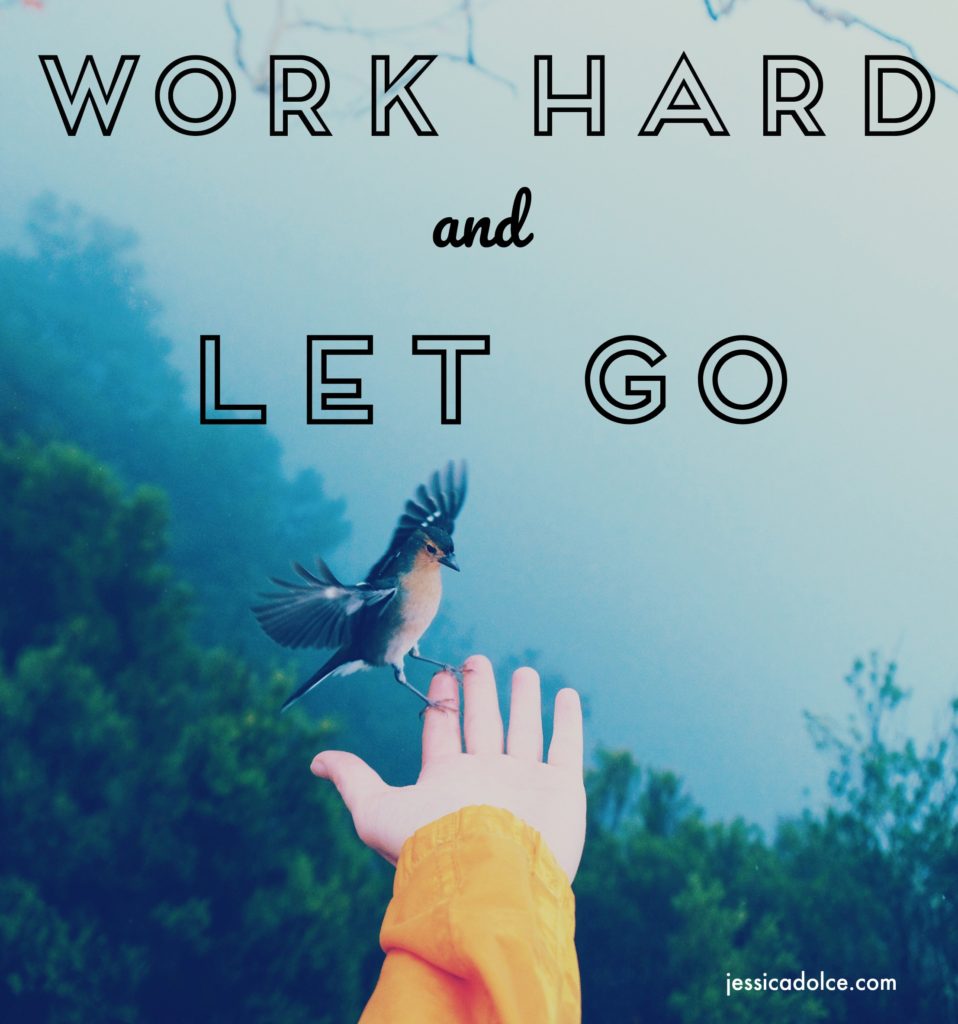
Work hard and let go. Speaking of non-attachment, our caregiver roles require us to work very hard to achieve a positive outcome. But the outcomes are out of our control.
We are not in control.
For example, we could be PERFECT (spoiler: no we can’t) and things still won’t always work out.
This work is not completely up to us.
There are too many moving parts, the complexity of living beings, and cosmic unknowns that we do not have control over.
No matter how hard we try, we cannot be certain of the outcome.
“However hard you work, however much you give, and however many years you deny and sacrifice yourself for the sake of your work, the outcomes of that work are not up to you. We can determine our contribution to the world, but never the outcomes of that contribution.” – Elie Calhoun
This means we need to find a way to feel alright about our work and ourselves, even when the outcome isn’t what we’d hoped for. I recommend setting “internal conditions for success.”
Margaret Wheatley knows, “If we’ve returned again and again to our work, if we’ve taken up the challenges rather than avoiding them, if we’ve known when to give up, when to change, when to open up, when to love…well, I for one, will feel very successful.”
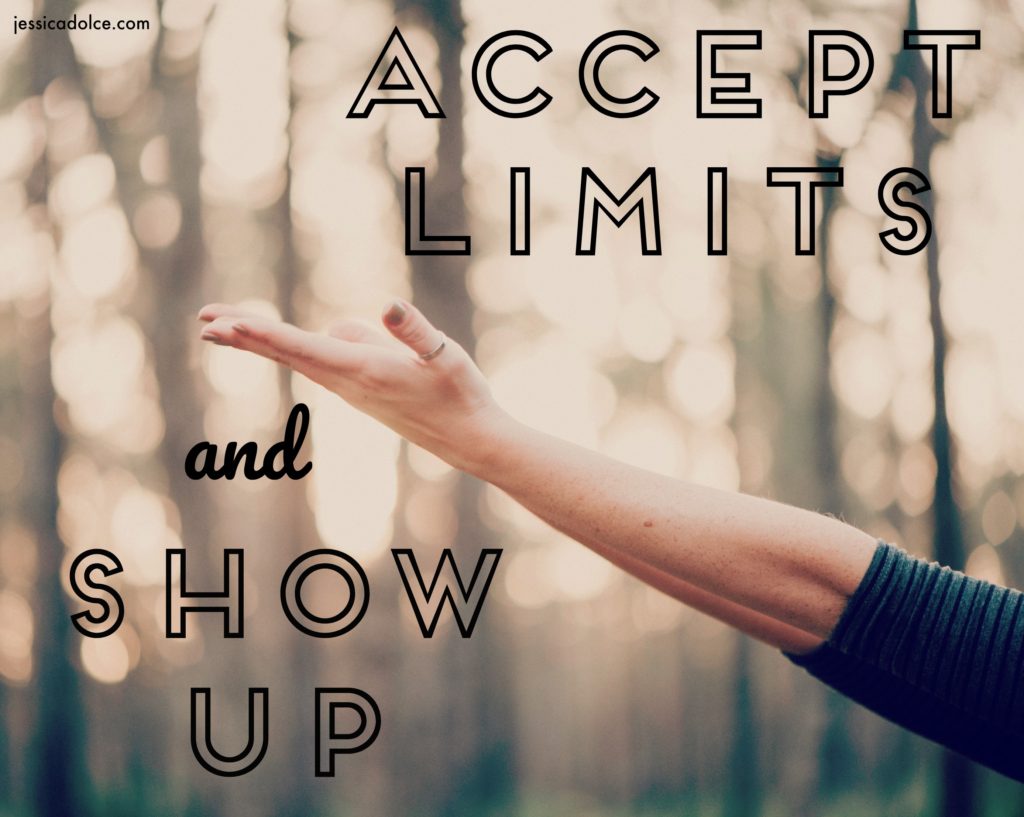
Accept limits and show up. There are limits to what we can do. So many problems cannot be fixed. We need to keep showing up to serve anyway. Did you know fixing and serving are different?
“Serving requires us to know that our humanity is more powerful than our expertise.” – Rachel Remen
Listen to Sharon Salzberg, OG compassionate badassery tour guide:
“We don’t always know how to relieve others’ suffering; often we can’t, in fact. Then our only recourse is to be present and attend to the suffering, which can be difficult.”
Showing up and being present is EVERYTHING. Or as my coach would say, we gotta hold that space.
In animal welfare work, compassion holds and hospice are a beautiful example of this.
Back to Sharon, “…any skillful caregiving relationship relies on balance: the balance between opening one’s heart as much as possible and accepting the limits of what one can do.”
Yo, that’s soft front, strong back again!
With compassion balanced by equanimity, we can show up and be present to suffering, even when we can’t fix a thing.
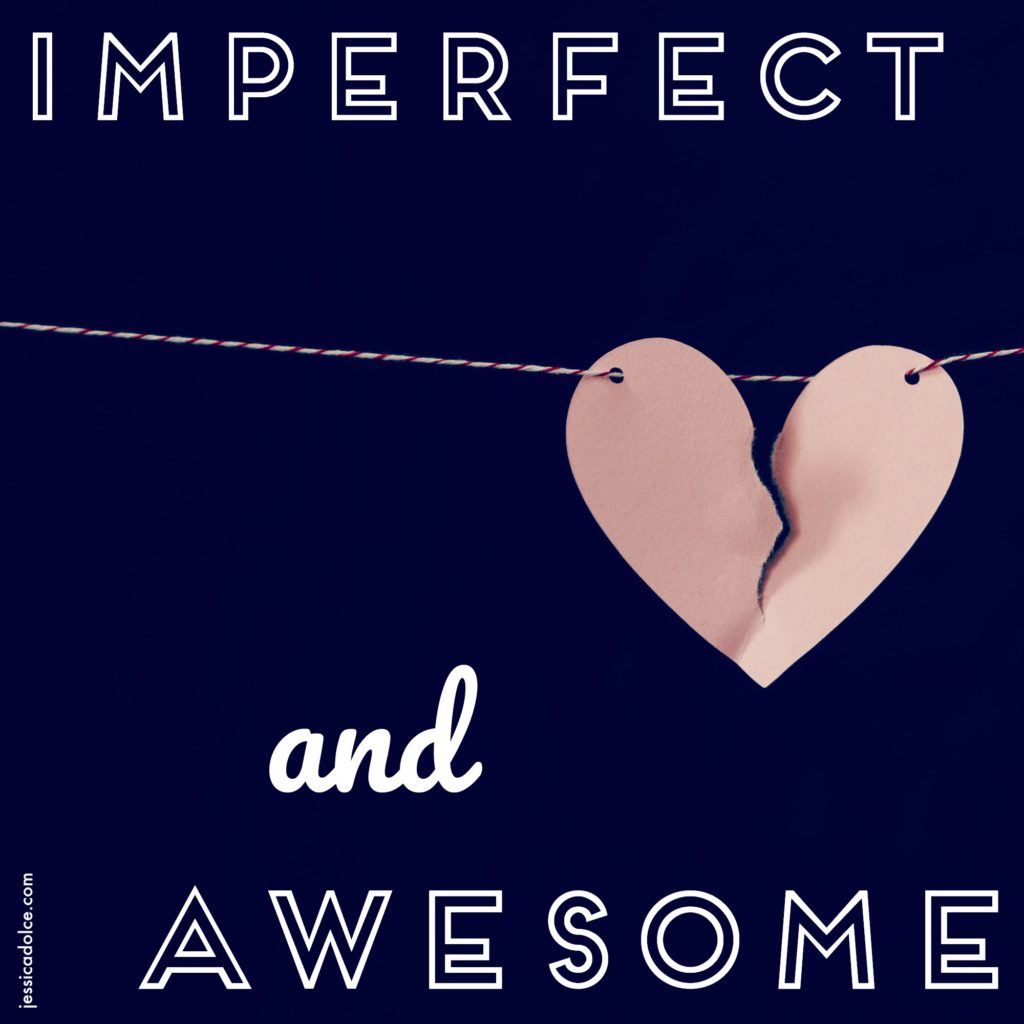
Imperfect and still awesome. We’re highly skilled. We strive to meet our personal and professional standards. Lives are on the line.
And yet. We make mistakes. We fail. ALL OF US DO.
We are not our mistakes. We are imperfect human beings, doing our best in imperfect organizations and systems, with limited resources, helping complex living beings.
Striving to be awesome at caring for others is a wonderful trait. But lots of us are stuck in perfectionism instead.
“Perfectionism is the belief that if we live perfect, look perfect, and act perfect, we can minimize or avoid the pain or blame, judgment, and shame. It’s a shield…it’s other-focused. What will they think?” – Brene Brown, compassionate badassery researcher
Perfectionism is self-destructive. No one can perform at 100%, 100% of the time. Trying to do that is an express train to Burnoutville.
Know that you will cause harm (paradox alert: you can cause harm and be a healer) at some point. Accept this ahead of time. Try not to judge yourself. Fortunately, mistakes will help you grow.
You are both imperfect and awesome. The answer to all of this is mega doses of self-compassion.
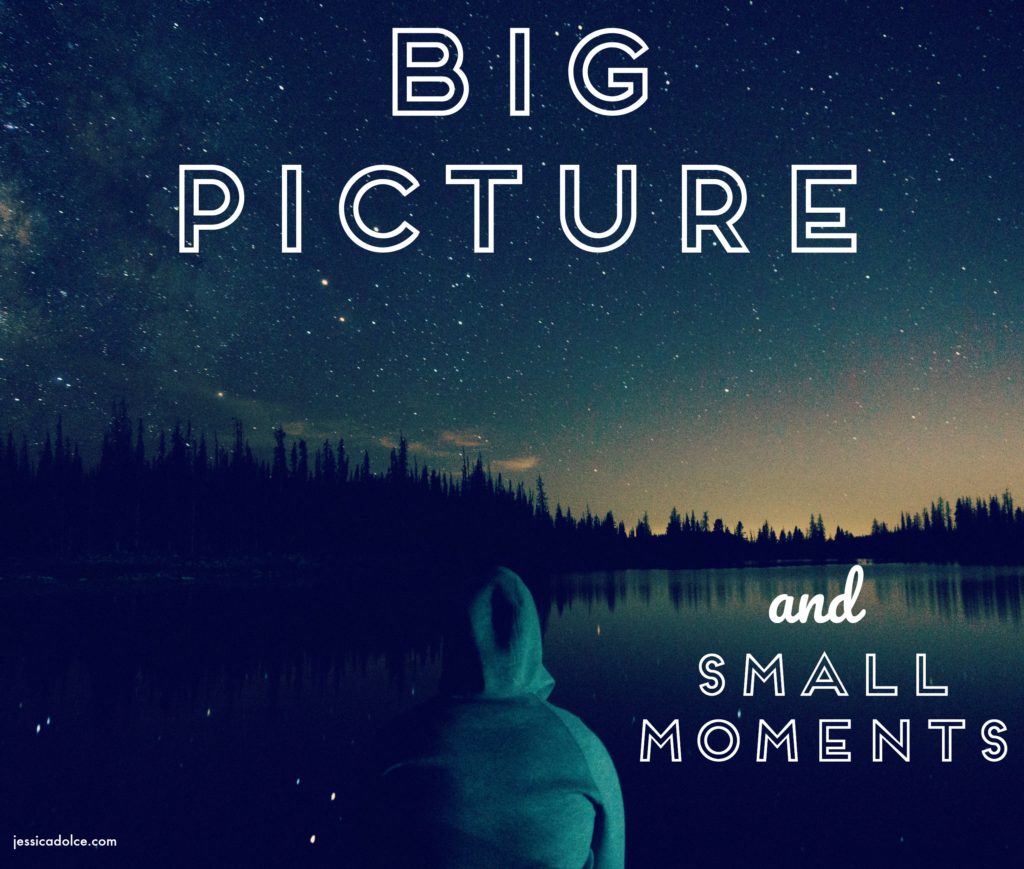
Small moments and big picture. If we want to feel like our work is meaningful and we’re having an impact (despite all of the above) we need to pay attention and toggle our perspective.
Learn to zoom in mindfully, so that you notice you are making a difference for at least one animal or person every day. Then zoom out to take in the big picture impact you are making over the course of your entire lifetime.
Both matter.
Sit in a kennel and comfort a scared dog. You are a success.
Adopt out thousands of dogs. You are a success.
Neither is negated by the fact that you couldn’t comfort or save them all.
Neither is negated if you take a break or quit or change careers.
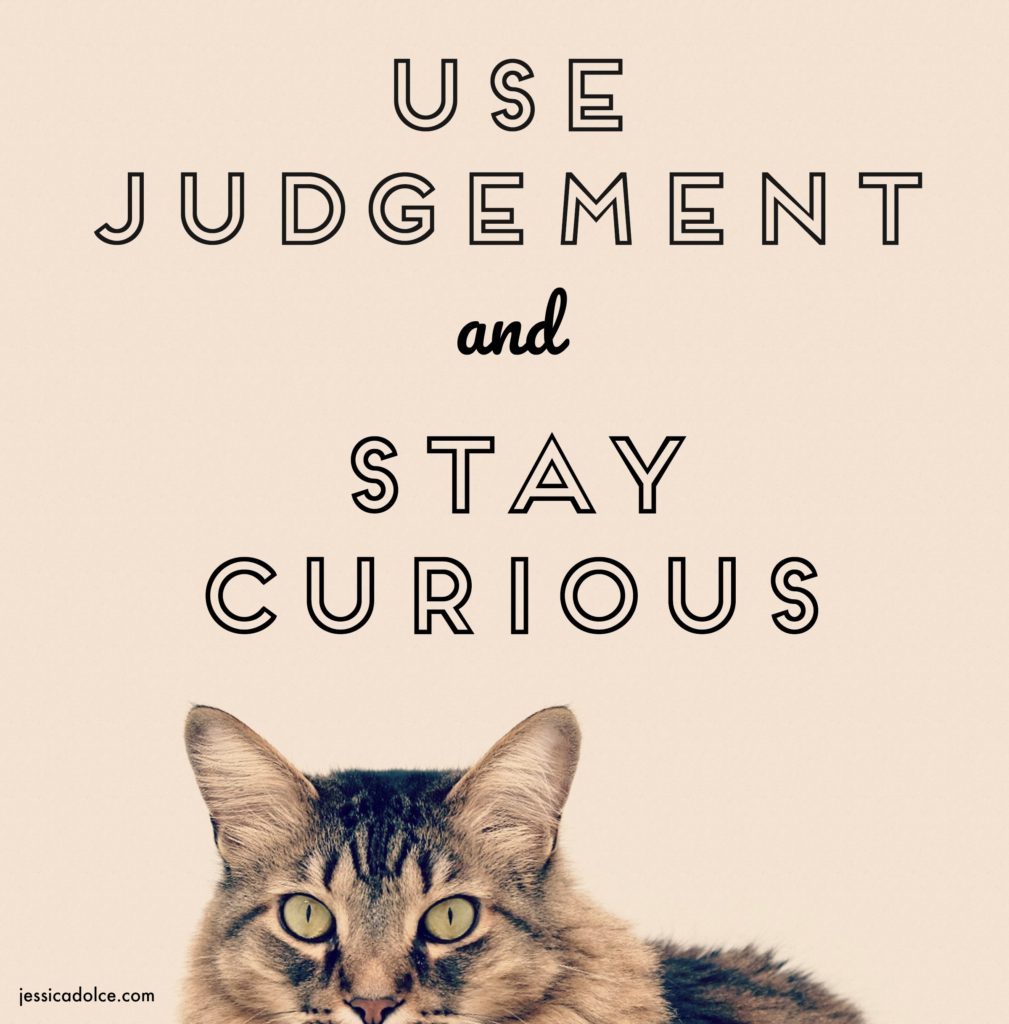
Use judgement and stay curious. We need to use our good judgement every day at work. How else will we make decisions? But using our best judgment is not the same as being judgmental.
Complex work + imperfect human beings + systemic barriers = few ideal outcomes.
When you catch yourself judging others (we all do it), consider how their actions are helping them to cope with a problem. It may not be a skillful approach, but it’s probably the best they can do with the resources they have.
Assume people are doing their best. It feels better and helps us to serve effectively.
Meet people where they are. Stay curious. Question your assumptions. We’re not so different from each other.
Use your judgement to help others take whatever small steps they can. Trust it will lead to the best possible outcome.

Welcome joy and pain. No mud, no lotus, as Thich Nhat Hanh likes to say.
Or as I like to say, no shit, no roses. My garden beds are full of alpaca poop right now. I’m going to eat some tasty peas this summer. Hooray for shit!
“Before you know kindness as the deepest thing inside, you must know sorrow as the other deepest thing.” – Naomi Shibab Nye
Word.
The joys of helping others are often directly connected to the painful parts. This is the tension of opposites that we have to live in.
Our joy and pain are in a committed relationship. They’re not just friends with benefits.
Sometimes we get stuck only noticing the pain. We need to train ourselves to see and savor the joy.
“If you don’t stop and look around once in a while, you could miss it.” – Ferris Bueller
Say thanks often. Gratitude fills us up and open our hearts.
Maybe we’re desperately trying to avoid the pain. But if we numb out pain, we numb joy too.
“Pleasure is not a reward. Pain is not a punishment. They’re just ordinary occurrences.” – Chogyam Trungpa
Don’t worry. Neither is permanent.
So much of what we love about our work is rooted in pain. The work breaks our hearts AND fills the cracks with gold (see: the art of kintsugi).
Our deepest suffering is fertilizer for our deepest, most badass compassion.
Honestly, this is hard. Like Buddhist nun level hard (that’s why they’re the ones giving us all the good advice).
It takes deep resources.
That’s the other half of the compassionate badassery equation: pledging hardcore allegiance to your own welfare.
I’m talking holy rolling, ride or die chick dependability, hand-over-heart pledge allegiance to yourself kind of self-care.
My girl-crush Renee calls this self-loyalty.
Caring for ourselves is both a sacred obligation and our professional responsibility. It’s not something we need to feel bad about or selfish for doing.
Caring for our tools (heart, mind, spirit, and body) allows us to serve others for the long haul, doing ethical, effective work.
Here are some ideas for saying “I do!” to yourself:
– We need internal space to hold those contradictions. Create it: breathe, meditate, pray, do yoga, share your stories, allow for silence, trust in something bigger.
– Self-care is more than massages and taco night. It’s medical and dental care. It’s doing your bills, taking your meds, and having difficult conversations. More here.
– This is not all on you as an individual. Self-care can’t fix a toxic work environment or an unreasonable job description. Question the systems you work within. Organizations need to be held accountable for the conditions they create. Fight to make them better only IF you have the energy and safety to do so.
– Life is a series of expansions and contractions. Plan for this. When you’re in an upswing, put resources in place for the downswing.
– Remind yourself that you do not have to earn your self-care. EVER. You deserve care simply because you exist. Just like the animals do.
– Pay attention to your body. It’s keeping the score and it’s trying to talk to you. Listen, please.
– There will always be more need then you can address in a day (or lifetime). Your to-do list regenerates at night like gremlins. There is no finish line. Rest as you go.
– Notice your self-talk and tone. Ease up. Talk to yourself with the same kindness you’d give to your BFF (or your dog).
– Embrace “good enough” rules. Screw perfect. Find your own version of “good enough” when it comes to self-care, work, parenting, or anything else. The Good Enough Club is always accepting new members.
– Build healthy, flexible boundaries. Start by saying no to what drains you, so you can say yes to what energizes and supports you.
– Invest in your life outside of work, even if the work you do is your calling. Playing will counterbalance the intensity of the work you do. Refill that cup, girl!
– Your journey will have ups and downs. You will likely still experience compassion fatigue or burnout, even if you do everything “right”. Don’t beat yourself up about it.
– You cannot do this alone. No one can. Tend and befriend. Ask for and accept help.
– Emotions are contagious. You’re not a silo. “Take responsibility for the energy you bring into the room” – Jill Bolte Taylor. And notice when you’re soaking up other people’s stuff too.
– Own your mistakes. Do what you can to make it right. Be honest with yourself. Accountability heals.
– Ground your work in something bigger than your anger. Desiree Adaway reminds us that if, “…we ground our work in joy, support, community, and security we will win.”
– There is no shame in receiving mental health help. FUCK that. If your leg was broken, you’d go to the doctor. If your heart and brain are busted, go to the doctor.
– Make your life a martyr-free zone. Suffering and self-sacrifice are not competitive sports. Your suffering is not required in order for you to be of service to others.
– Recognize that you always have choices, even if they’re hard ones. Take responsibility for your life.
– Busyness and productivity are not badges of honor. Exhaustion is not something to brag about. Let go of “busy” as way to prove your value. Say it with me now: Rested is the new busy.
– Don’t take shit personally. It’s not about you. See: The 4 Agreements
– Adjust your expectations. “Happiness is greater than or equal to your perception of the events in your life, minus your expectation of how life should behave.” – Mo Gawdat
– Resiliency is like a muscle. Work it out like a boss and you’ll grow stronger, even in the broken places. Leonard reminds us that that’s where the light gets in, right?
There’s more, but I don’t want to punish you with another 2,000 words. In fact, here’s a Facebook cover image, as a reward for getting this far:
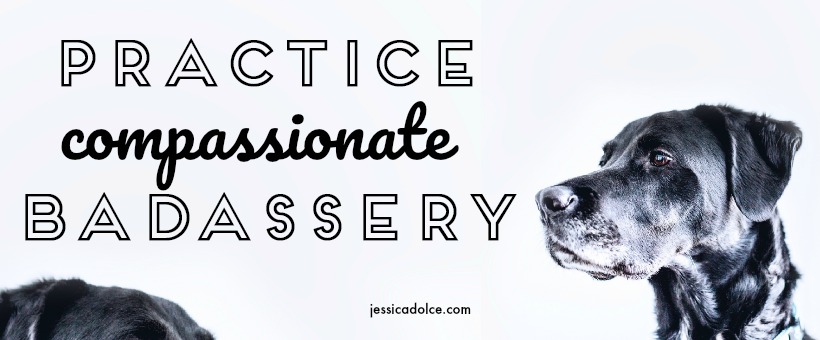
To summarize, practicing compassionate badassery means mindfully making vulnerable, courageous choices that support sustainable, ethical, and satisfying caregiving.
To practice compassionate badassery:
-
Choose to embrace uncertainty and paradox.
-
Pledge hardcore allegiance to your own welfare.
Practicing compassionate badassery requires that we invest deeply in ourselves, so that we can thrive amongst all of the contradictions and unknowns of serving others.
The work will never be easy or painless. Meaningful work rarely is. The waves will keep on coming, according to Jon.
But if we choose to practice compassionate badassery, then we’ll be able to more skillfully navigate these challenges, continue caring for others, and enjoy our one and only life a whole lot more.
“What are we here for if not to enjoy life eternal, solve what problems we can, give light, peace and joy to our fellow-man, and leave this dear fucked-up planet a little healthier than when we were born.” – Henry Miller
Check out the new Compassionate Badassery Matrix!
Listen to me talk and laugh about this idea (I share a poem that explains a lot called Autobiography in Five Short Chapters) in this Facebook video.
You can read and download the shorter Compassionate Badassery Manifesto here.
Want some help with this? I offer 1-on-1 coaching that can help you FEEL good while you DO good!
Let's Stay Connected.
Sign up for ideas, updates, and your free copy of The ABCs of Self Care Workbook!
I heart boundaries and will never sell your email address. Unsubscribe at any time.

